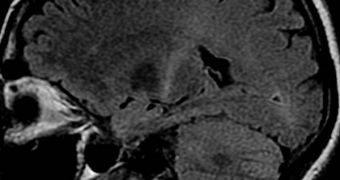In a new study, experts managed to identify a previously-unknown neural pathway, that they say could provide them with a better understanding of a variety of devastating neural conditions. The team also found two mutations that are responsible for triggering a condition they discovered 15 years ago.
The study was conducted by investigators at the Mayo Clinic. Details of the work were published in the latest issue of the top journal Nature Genetics. This discovery is very important because it could potentially be applied to a large number of neurological disorders.
The condition that Mayo experts found 15 years ago is called hereditary sensory and autonomic neuropathy type 1 (HSAN1) with dementia and hearing loss. It often begins developing in young adults, aged 20 to 35, the team adds.
In the people it affects, it reduces cognitive ability, hearing and the ability to sense progressively. At this point, scientists do not have any cure or course of treatment for this tremendously complex disease.
This disorder was first described by Mayo Clinic senior neurologist Peter Dyck, MD. The expert is also the coauthor of the new paper. He says that it was technological advancements that allowed him and his team to make the recent discovery.
“We were able to do this now because of Next Generation genomic sequencing technology,” explains Mayo Clinic neurologist Christopher Klein, MD, who was also the lead author of the research.
“We also had the invaluable help of our international collaborators who helped identify additional extended families with this condition, making the extensive genetic data available to us,” he adds.
Though the new data do little in terms of raising hopes of survival for people already suffering from HSAN1, they offer potential improvements in the outcome of works seeking to understand neurodegeneration, a class of disorders including Parkinson's and Alzheimer's.
Such diseases are usually progressive, and they tend to have irreversible results. At this point, all that doctors can do is try to delay their onset in individuals who are predisposed to developing them.
Funding for the new investigation came from the US National Institutes of Health (NIH) and the Muscular Dystrophy Association (MDA), Science Blog reports.

 14 DAY TRIAL //
14 DAY TRIAL //